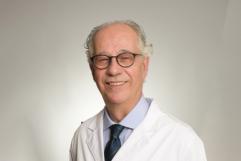
The importance of putting the patient at the centre
Prevention, diagnosis and treatment are the three pillars on which today’s medical system works, without putting to one side the need for active, personalised listening in each case.
Fortunately, science is transforming our view of cancer. Therapy innovation allows precision treatments to be designed that offer new survival possibilities. At the same time, drugs are appearing that help to alleviate the many side effects and, little by little, recover quality of life. But in order to continue moving forward, it is also very important to listen to those who are facing up to their disease every day.
As Carina Escobar, the Chairwoman of the Platform of Patient Organisations clearly explains, it is essential “to always put the patient at the centre of everything. The organisations that make up the platform take part in the research and we bring our experience to contribute to the fact that there is a more multi-disciplinary care and a more humane treatment in serious diseases, such as cancer.”
Today in Spain, 42% of people, after diagnosis, return home without having completely understood the information and without knowing what they are going to do from this moment onwards, Escobar underscores. Only 10% of patients will take decisions shared with the healthcare professionals.
For this reason, it is essential “to have a reference doctor in this process, with whom we can consult any queries we might have. There must be a monitoring process, ensuring that someone leads us by the hand until we can finally walk alone,” she adds.
Escobar is clear that the essential factor for any patient is, “in the first place, having an early diagnosis. Following this, access to the correct treatment is needed. Along with learning to manage the uncertainty and fear. We are never ready to face up to a disease like cancer. While we are trying to take in this news, we are still worried about work, family, the mortgage… for this reason, the best way to be able to manage all of this is to be correctly informed and instructed and to have psychological help when necessary.”
Testimonies from patients such as the participants in the Pelayo Vida Challenge show that the combination of science with information and the will to overcome the disease are managing to radically transform our view of cancer, offering us new hopes for leaving the disease behind and managing to completely reconnect with life.



